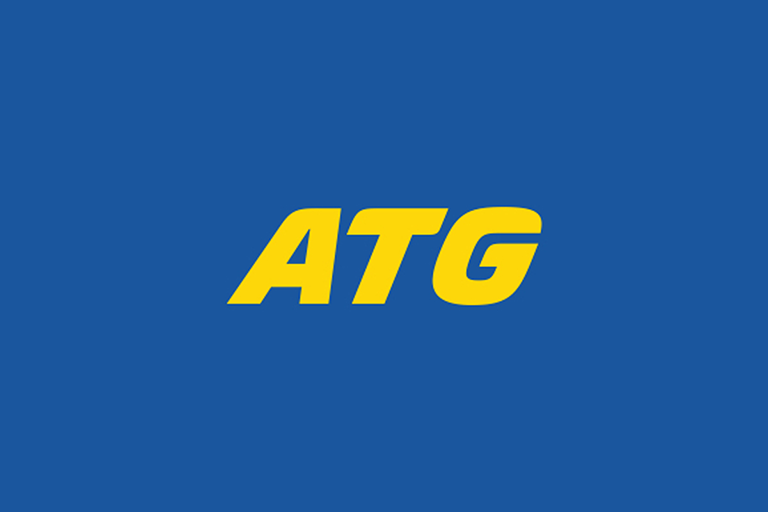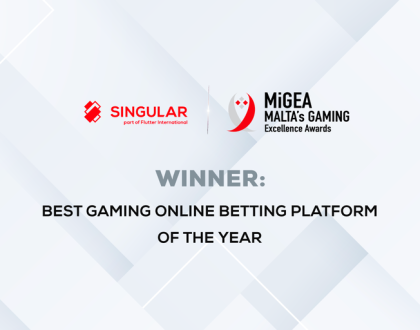ATG’s Call Against Sweden’s Illegal Gambling

Swedish gambling operator Aktiebolaget Trav och Galopp (ATG) has sounded an alarm on the persistent issue of illegal gambling in Sweden. The operator’s recent report underscores a concerning decline in the channelisation rate, prompting calls for more stringent actions against unlicensed market players. This trend poses a threat not only to the integrity of Sweden’s gambling industry but also to the safety and well-being of its citizens.
ATG's Quarterly Report: Key Findings
The Q1 report released by ATG highlights a worrying trend: the channelisation rate, which measures the movement of players towards the legal market, has dipped from 69% to 82% in Q4 2023 to a range between 68% and 81% in Q1 2024. This decline signals an increasing preference for unlicensed gambling platforms among Swedish players.
Unlicensed Market Size and Growth
The report estimates the value of the unlicensed market in Sweden to be between SEK3.7 billion and SEK7.4 billion annually. This significant market size illustrates the scale of the problem facing Swedish regulators. Furthermore, traffic to unlicensed operators’ websites has surged tenfold since 2019, indicating a rapid growth in illegal gambling activities. These figures reflect a growing challenge for the Swedish gambling regulator in curbing illegal gambling activities.
Top Gambling Websites
ATG’s findings reveal that none of the top 20 gambling websites with the highest traffic during the quarter were on the regulator’s prohibition list. Alarmingly, 18 out of these 20 sites use the same platform providers as licensed operators, further complicating the issue. This overlap indicates that unlicensed operators are leveraging existing infrastructures to bypass regulatory scrutiny, making it difficult for authorities to distinguish between legal and illegal operations.
CEO Hasse Lord Skarplöth's Call to Action
ATG’s CEO, Hasse Lord Skarplöth, expressed deep concern over these developments. He emphasized the urgent need to rethink Swedish regulations on illegal gaming, advocating for stricter measures to prevent unlicensed companies from operating in Sweden.
Inadequacy of Current Regulations
“The prohibition on promotion and targeting criteria clearly do not serve as protection for the most vulnerable groups and to achieve good channelling,” Skarplöth stated. He urged the authorities to adopt the recommendations from the latest inquiries by Håkan Hallstedt and Gunnar Larsson, which propose making it illegal to offer unlicensed gambling in Sweden, irrespective of targeting criteria. Skarplöth’s call to action highlights the inadequacy of current regulations, which fail to address the root cause of the problem: the availability and accessibility of unlicensed gambling platforms.
Current Regulatory Landscape and Its Shortcomings
Prohibition on Promotion
Sweden’s existing regulations prohibit unlicensed operators from marketing gaming products to players. However, these rules appear insufficient in combating the proliferation of illegal gambling. The ineffectiveness of current regulations in protecting vulnerable groups and ensuring proper channelisation necessitates a comprehensive overhaul.
Legal Ambiguities
Skarplöth’s call for action highlights a critical gap in the regulatory framework. By focusing solely on the prohibition of marketing, the regulations fail to address the root cause of the problem: the availability and accessibility of unlicensed gambling platforms. Legal ambiguities allow unlicensed operators to exploit loopholes and continue their operations unabated.
The Impact of Illegal Gambling on the Swedish Market
The rise in illegal gambling poses several risks to the Swedish market. For one, it undermines the efforts of licensed operators who comply with stringent regulations to provide safe and responsible gaming experiences. Additionally, it exposes players to unregulated environments where consumer protections are minimal, increasing the likelihood of problem gambling and financial losses.
Economic Implications
The financial implications are also significant. The unlicensed market’s estimated worth of up to SEK7.4 billion represents substantial revenue losses for the state and licensed operators. These funds could otherwise contribute to public welfare programs and responsible gambling initiatives. The loss of tax revenue from illegal gambling operations also hampers the government’s ability to fund essential services and initiatives aimed at promoting responsible gaming.
Social Risks
Beyond the economic impact, the social risks associated with illegal gambling are considerable. Players who engage with unlicensed operators are more likely to encounter unfair practices, such as rigged games and delayed payouts. Moreover, the lack of consumer protections in the illegal market increases the risk of gambling addiction, financial ruin, and associated mental health issues. These problems can have far-reaching consequences for individuals, families, and communities.
Recommendations for Strengthening Regulations
To effectively combat illegal gambling, several steps can be considered:
Comprehensive Ban on Unlicensed Gambling
As suggested by Skarplöth, making it illegal to offer unlicensed gambling in Sweden, regardless of targeting criteria, would be a decisive step. This approach would eliminate legal ambiguities and provide a clearer mandate for enforcement agencies. A blanket ban on unlicensed gambling would simplify enforcement and reduce the opportunities for illegal operators to exploit loopholes.
Enhanced Monitoring and Enforcement
Investing in advanced monitoring technologies to track online gambling activities and enforce regulations more effectively is crucial. Regular audits and checks on platform providers can help identify and shut down unlicensed operations. By leveraging data analytics and artificial intelligence, regulators can better detect and respond to illegal activities in real-time.
Public Awareness Campaigns
Educating the public about the risks associated with illegal gambling and promoting the benefits of using licensed operators can help steer players towards safer options. Awareness campaigns can also highlight the importance of supporting regulated markets for public good. By increasing public awareness, regulators can reduce the demand for illegal gambling services and encourage players to make safer choices.
Collaboration with International Bodies
Illegal gambling is often a cross-border issue. Collaborating with international regulatory bodies and law enforcement agencies can enhance the effectiveness of measures against unlicensed operators. By sharing intelligence and coordinating enforcement actions, countries can tackle the global networks that facilitate illegal gambling operations.
Conclusion
The rising trend of illegal gambling in Sweden is a pressing issue that demands immediate and robust action. ATG’s call for stronger regulations and enforcement measures is a crucial step towards safeguarding the integrity of the Swedish gambling market and protecting vulnerable players. By implementing comprehensive and stringent policies, Sweden can address the challenges posed by unlicensed gambling and ensure a safer, more regulated gaming environment for all.
ATG’s proactive stance on this issue sets an important precedent for other stakeholders in the gambling industry. It underscores the need for a unified approach to tackling illegal gambling, involving regulators, licensed operators, and the public. As Sweden moves forward with potential regulatory changes, the lessons learned from ATG’s report and recommendations will be invaluable in shaping a more secure and responsible gambling landscape.
FAQ
What is the current channelisation rate for legal gambling in Sweden?
The channelisation rate is between 68% and 81% as of Q1 2024.
How has traffic to unlicensed gambling websites changed since 2019?
Traffic to unlicensed gambling websites has increased tenfold since 2019.
What is the estimated value of the unlicensed gambling market in Sweden?
The unlicensed gambling market in Sweden is valued between SEK3.7 billion and SEK7.4 billion annually.
Why are none of the top 20 gambling websites on the regulator’s prohibition list?
None of the top 20 sites were on the list due to regulatory gaps and the use of similar platforms as licensed operators.
What are ATG’s recommendations for combating illegal gambling?
ATG recommends making it illegal to offer unlicensed gambling in Sweden, enhanced monitoring, public awareness campaigns, and international collaboration.
What are the risks of illegal gambling for players?
Illegal gambling exposes players to unregulated environments with minimal consumer protections, increasing the risk of problem gambling and financial losses.
How do illegal operators bypass Swedish regulations?
Unlicensed operators use the same platform providers as licensed operators and exploit legal ambiguities in the current regulations.
What are the financial implications of illegal gambling in Sweden?
Illegal gambling results in significant revenue losses for the state and licensed operators, impacting public welfare and responsible gaming initiatives.
What role do public awareness campaigns play in combating illegal gambling?
Public awareness campaigns educate players about the risks of illegal gambling and promote the benefits of using licensed operators, steering them towards safer options.
How can international collaboration help combat illegal gambling?
Collaborating with international regulatory bodies and law enforcement agencies can enhance the effectiveness of measures against unlicensed operators, addressing the cross-border nature of illegal gambling.
Recommended Posts

Discover Malta’s iGaming Hub
July 3, 2024

1win Partners Affiliate Program
July 3, 2024

Singular Wins at MiGEA Awards 2024
July 3, 2024




